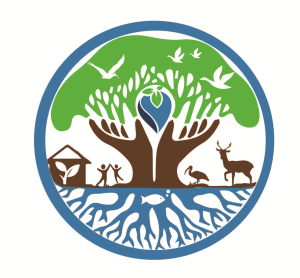People from all over the world came to London to share in positivity, optimism and creativity at a 3-day Conservation Optimism summit.
This post was originally published on the Edinburgh Conservation Science website.

One really cool thing I’ve been involved with is the Conservation Optimism movement, which I’ve mentioned in previous blogs. This culminated in a 3-day summit at the end of April and I was very privileged to be part of the organising team through my supervisor EJ and the ICCS group at Oxford. Part of my job was to organise a panel of politicians with an interest in the environment. Unfortunately, although I’d secured commitments from very interesting speakers from all parties, Theresa May’s decision to call a snap election led to all of them withdrawing. This was disappointing, and it was easy to despair at the lack of political engagement with environmental issues suggested, but the rest of the summit provided an antidote.
People from all over the world came to London to share in positivity, optimism and creativity
I haven’t been to many conferences, but I’m sure there aren’t many like this. For three days, people from all over the world came to London to share in positivity, optimism and creativity. As well as politicians from other countries, we heard from psychologists about the importance of optimism for completing challenging tasks. We heard from businesses about how they are trying to do better. And we heard from many conservationists who have achieved real victories for the environment. It was a celebration of successes, a moment to learn from past efforts and the opportunity to think about taking conservation into the future. Realistically, not enough is being done for the environment, but the tide may be turning.
Social media, the internet, are incredible avenues for spreading messages and building support
Two of the plenaries really inspired me in particular. The first, Anna Oposa from Save Philippine Seas, because she was a young person that I could relate to. In fact, we’d even done our Masters courses in the same place, just a few years apart. But despite being young, she has achieved a lot in her home country. Using social media and smart slogans, she showed how she has built public campaigns and put pressure on politicians and businesses to think about the impacts of their activities on the oceans. Before she’d finished her speech, my head was spinning with ideas for issues in my local area and how I could try to address them. Social media, the internet, are incredible avenues for spreading messages and building support. The second speaker that impressed me was Lisel Alamilla, an environmental activist who then became a minister in Belize. It was fascinating to hear from someone who had both been a vocal and effective critic of the government, and then had a chance to join the government and implement those policies. I was interested to hear how she navigated the messy world of politics while trying to do good, and she seemed like a very resourceful, tactful and strong person.
There were also hundreds of smaller sessions; from conservationists sharing their successes and lessons, to innovative new ideas being developed. I took part in a workshop for the ‘Green list’ – an optimistic and forward-thinking counterpart to the famous IUCN red list. The red list is a central tool in conservation for classifying endangered species and keeping tabs on how close they are to extinction. But how do we keep tabs on species that are moving away from extinction thanks to conservation efforts? How do we communicate this and how can we measure the success of conservation in a standardized way. Those were some of the questions we brainstormed in the workshop, and no doubt the ‘Green list’ may be an equally important tool as we move from a problem-focused to a solutions-focused conservation.
Check #conservationoptimism on twitter, which has gained a life of its own with good news stories being shared every day.
